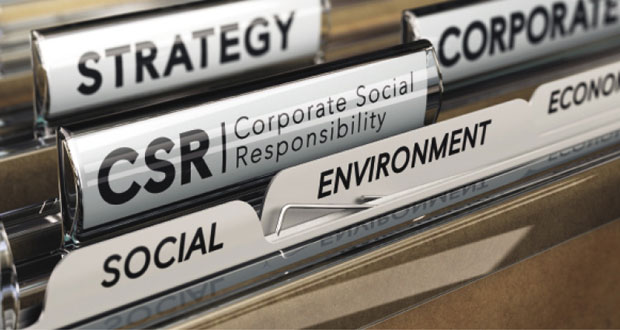 Jessica McGoverne, Director of Policy and Corporate Affairs, Sedex the membership organisation that provides advice for companies on managing and improving working conditions in global supply chains, explains how businesses can operate ethically and source responsibly
Jessica McGoverne, Director of Policy and Corporate Affairs, Sedex the membership organisation that provides advice for companies on managing and improving working conditions in global supply chains, explains how businesses can operate ethically and source responsibly
With the COVID-19 pandemic still affecting the availability of labour, materials and services, it’s reasonable to presume that businesses should anticipate continued supply chain disruption this year. Companies must have the processes in place to both overcome these challenges, and ensure they are taking an employee first approach – ensuring workers in supply chains are protected against potential exploitation.
To do this, organisations need to monitor the trends that impact their supply chains, and work to manage risk and support supply chain resilience. Trends that organisations should be aware of include:
LEGISLATION AND THE CONTINUED DRIVE FOR BUSINESS ACCOUNTABILITY
In 2021 several nations including Norway, Germany and the USA, passed laws that place greater responsibility on businesses to provide more transparency regarding their supply chain operations. This includes steps to manage risks to workers and the environment.
This raft of new transparency legislation is becoming increasingly detailed and broad in scope. It often expands beyond country borders, and will continue throughout 2022.
In the UK, the government is currently reviewing its modern slavery strategy, and is set to provide an update by the spring. The European Commission is also due to release a draft of its mandatory human rights and environmental due diligence legislation, in the first half of this year. Businesses should monitor these legislative changes, and develop action plans as they evolve to ensure they remain compliant.
OVERCOMING MODERN SLAVERY
Modern day slavery remains a pressing issue. A new report from the International Labour Organisation, is due to be published, and is predicted to show more victims of modern slavery than ever before.
Many factors will have exacerbated these findings, including political unrest, climate degradation, and disruption across global supply chains brought about by the pandemic.
The launch of the report will likely catapult the issue of modern slavery into public consciousness, sparking a renewed focus on issue-specific laws such as the UK Modern Slavery Act. It will also prompt renewed focus on businesses to re-evaluate risks that exist within their supply chains.
COVID-19 AND ONGOING DISRUPTION
Businesses will continue to experience challenges such as labour shortages due to potential lockdowns or forced working from home orders. Workers continue to be particularly at risk, including being vulnerable to extensive working hours. This has the potential to lead to compromised health and safety standards and can be an indicator of forced labour, when excessive over a long period of time.
According to the Centre for Social Justice (CSJ) and Justice and Care, there are at least 100,000 people held in modern slavery in the UK alone. Organisations therefore need to regularly take stock of their operations, ensuring that they do not compromise working conditions as they rush to engage new suppliers or extend working hours. This includes maintaining regular due diligence with stakeholders, and conducting regular supplier assessments, both onsite and virtually.
CLIMATE CHANGE & HUMAN RIGHTS
The COP26 conference last year renewed the world’s focus on meeting environmental targets. Many companies now face additional pressure, needing to measure the environmental impact across their supply chains. This is driven in part by governments looking to demonstrate both commitment and action.
As industries explore new technologies, the intersection between climate change, potential solutions and human rights will become more widely recognised. The environmentally friendly solutions developed and implemented will need to uphold human rights, and account for any potential risks to people.
For example, we already know that there are significant human rights risks in some renewable energy supply chains. Sedex’s risk assessment tool Radar has revealed that metal ore in the mining sector is “high risk” for many issues, including poor health and safety, excessive working hours, and restrictions to freedom of association. Businesses looking to do their bit for the planet, will need to have one eye on the impact this new type of operating model has on workers across their supply chain.
DIVERSITY AND INCLUSION
For many businesses, having a diverse and inclusive workplace has always been a key pillar of their operations, but there are still many laggards who have failed to adapt their organisation.
A renewed focus and pressure has been put on these businesses, especially since the emergence of the Black Lives Matter movement. Stakeholders – especially the public – now expect companies to make commitments and set long-term strategies to drive greater inclusivity.
Leading international companies and some governments are broadening their diversity and inclusion strategies to more explicitly include racial disparity, indigenous peoples and LGBTQ+ communities. Businesses that look to make their organisation as open and inclusive as possible, will likely prosper the most.
A HOLISTIC VIEW OF THE SUPPLY CHAIN
As the conversation around ethical operations evolves, gathering and analysing data through sophisticated platforms is crucial. This data is the key to understanding the people, operations and working conditions across the supply chain and will provide a holistic view of operations.
Businesses must also look to establish and maintain regular, open communication with suppliers, helping to manage current disruptions and build long-term resilience. It’s only by maintaining these regular risk assessments to understand and address issues, that organisations will be able to stay on top of presented challenges that exist within their supply chain.





